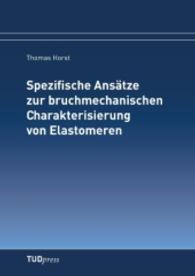Full Description
The main objective of this book is to understand the extent and the motives behind the shift in Turkey's foreign policy towards the Kurdistan Regional Government (hereafter the KRG) from an alternative globalist perspective, and to do so it examines a ten-year period of Turkey's foreign policy on the KRG, from 2003 to 2013. Despite the shadows casting by its history, Turkey has developed relations with the Kurdish government to the level of a strategic partnership within the last decade, following the 2003 invasion of Iraq.
The book identifies and analyses the factors that determine Turkey's foreign policy towards the KRG by providing a historical account of Turkey's approach towards a Kurdish polity, illuminating the extent of the shift in Turkey's foreign policy by looking at some dislocatory moves, and identifying and analyzing regional and global motives behind the Turkey-KRG rapprochement that led Turkey to abandon its traditional policy temporally towards the Kurdish Region of Iraq within the period this work is focused on.
The book brings the global dimension to the discussion and suggests that developments at the global level play a significant role in shaping the regional and internal contexts in which the partnership between Turkey and the KRG was established. And in conclusion it argues that Turkish foreign policy towards the KRG shifted between 2007 and 2013 due to the intersection of regional and global fault lines and competition between global power blocks, the United States, Russia and China over energy resources and strategic trade and transit energy routes.
Contents
1 A Globalist Analysis
2 Constructing the Threat
3 Turkey Confronts a New Reality
4 Securing a 'Kurdistan' In Iraq
5 Regional Motives
6 Global Motives
7 The Changing Global Context








